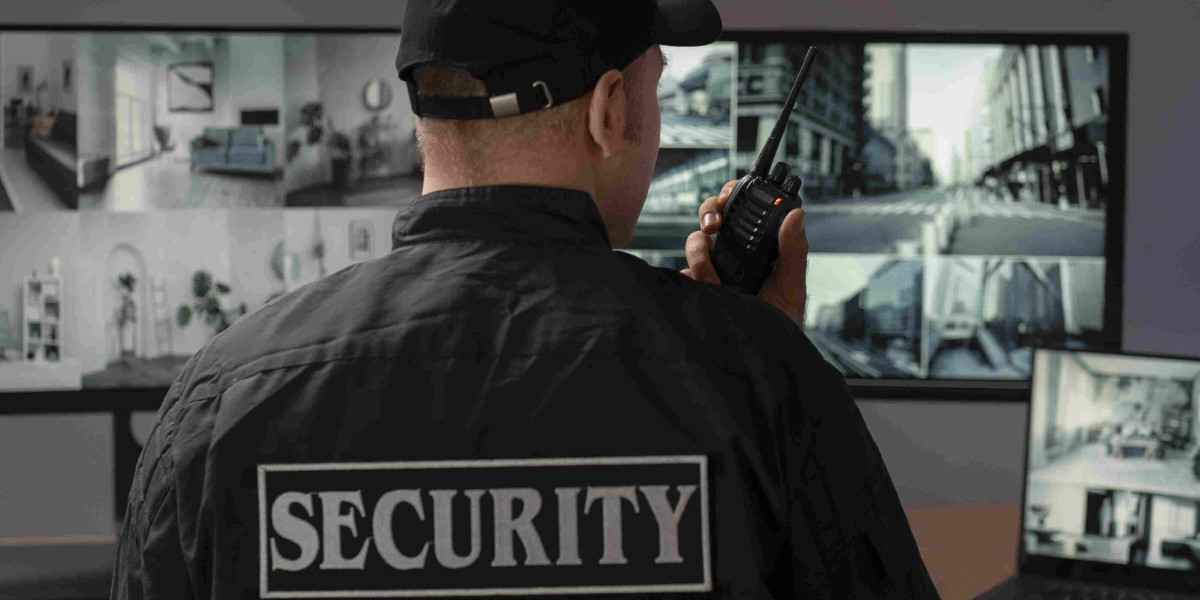In today’s rapidly evolving world, security has taken on a new dimension, blending cutting-edge technology with traditional methods to safeguard people and property. One of the most significant advancements in the security industry is the rise of virtual security guards. These tech-savvy guardians are changing how businesses and individuals think about protection, offering a more cost-effective and efficient solution. In this blog, we’ll explore what virtual security guards are, how they work, and why they’re becoming an essential component of modern security systems.
What are Virtual Security Guards?
A virtual security guard is a system that combines advanced surveillance technology with remote monitoring services. Unlike traditional on-site security guards, virtual guards monitor the premises from a remote location, leveraging high-definition cameras, motion sensors, and artificial intelligence (AI) to detect potential threats in real time.
The main feature of a virtual security guard is the ability to watch over multiple locations simultaneously. This is achieved by using strategically placed cameras and smart sensors, all connected to a central monitoring hub. These remote security officers can instantly assess any suspicious activities, respond to incidents, and alert authorities or on-site personnel when necessary.
How Virtual Security Guards Work
The virtual security guard system operates through a network of surveillance equipment installed at various points around the property. High-definition cameras equipped with night vision, motion sensors, and even thermal imaging ensure that every inch of the monitored area is covered 24/7. Here’s a breakdown of how the system works:
Real-Time Surveillance: Cameras capture footage continuously, feeding the information to a remote monitoring center. These live feeds are monitored by trained security professionals or AI-powered software, which is programmed to detect unusual behavior, such as unauthorized access, suspicious movement, or potential break-ins.
Automated Alerts and Responses: When the system detects a potential threat, it triggers an alert that is sent to the virtual security team. Depending on the situation, the guard can take various actions, from warning intruders through a two-way speaker system to contacting law enforcement or dispatching on-site personnel.
Incident Recording and Reporting: All events are recorded, allowing for future review and analysis. If an incident occurs, the virtual guard system generates reports that can be used for insurance claims or legal proceedings.
AI and Machine Learning: Many modern virtual security systems are powered by artificial intelligence, which enables them to differentiate between false alarms and real threats. For instance, AI can distinguish between a stray animal and an actual intruder, reducing the number of unnecessary alerts.
The Benefits of Virtual Security Guards
As technology becomes more advanced, virtual security guards are increasingly being adopted by businesses and homeowners alike. There are several key advantages to using virtual security services:
Cost-Effective: Hiring physical security personnel can be expensive, especially for businesses that require 24/7 surveillance. Virtual security guards provide a cost-effective alternative by reducing the need for multiple on-site guards. Businesses can save on salaries, benefits, and liability costs associated with employing traditional security staff.
Comprehensive Coverage: Virtual guards can monitor large areas simultaneously, something a single on-site guard may struggle to do. With cameras and sensors covering all entry points and vulnerable spots, virtual guards offer a higher level of protection.
24/7 Protection: Virtual security guard services can operate around the clock without needing breaks, vacations, or shift changes. This ensures continuous monitoring and swift response to potential security threats.
Scalability: As businesses grow, their security needs change. Virtual security systems can be easily scaled up by adding more cameras and sensors, allowing companies to expand their security network without the logistical challenges of hiring and managing additional personnel.
Faster Response Times: Virtual guards have the ability to immediately assess and respond to potential security breaches. In many cases, they can deter intruders by issuing warnings through a loudspeaker system or alerting local authorities in real-time. This can prevent theft, vandalism, or other criminal activities before they escalate.
Data-Driven Insights: With AI integration, virtual security systems can provide valuable data and insights, such as identifying security vulnerabilities or trends in criminal activity. This information can be used to optimize security protocols and improve overall safety.
Virtual Security Guards in Various Industries
Virtual security guard services are not limited to a single industry. They have proven to be a versatile solution across multiple sectors, including:
Retail: Stores can benefit from continuous surveillance to prevent shoplifting, monitor customer behavior, and secure inventory areas.
Construction Sites: These areas are often vulnerable to theft and vandalism after hours. Virtual guards ensure that equipment and materials are secure, even when workers aren’t present.
Residential Complexes: Homeowners’ associations and gated communities are increasingly adopting virtual security services to provide residents with a safer living environment without the high costs associated with hiring physical guards.
Offices and Warehouses: Businesses looking to protect sensitive information, valuable equipment, and assets find virtual guards particularly useful in safeguarding their premises.
Conclusion
As technology continues to shape the future of security, virtual security guards are emerging as a powerful tool to enhance protection for both businesses and individuals. They offer a more efficient, cost-effective, and scalable solution than traditional security methods while providing 24/7 monitoring and faster response times. Whether you're managing a large business or simply looking to secure your home, virtual security guards can provide peace of mind, knowing that your property is being monitored by the latest in security technology.
By integrating virtual security systems into your security plan, you not only stay ahead of potential threats but also optimize your overall safety strategy. The future of security is here, and it’s virtual.



